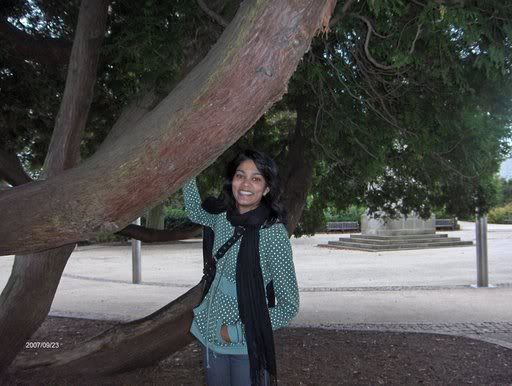Warwick focused heavily on developing our teamwork skills through usual coursework and various workshops. In every class we had some sort of group work and in three class we had major group projects, worth 40% of our overall grade. Half of the battle was learning how to navigate through and juggle the various group projects, the practice of management group project, individual learning/reading, and personal interests! In my team we ended up splitting the projects amongst the team. So what it comes down to is a few responsible for the entire group's grade/mark.
Additionally, workshops focused on helping us understand ourselves and how to utilize this understanding in working effectively with others. We did MBTI, Belbin Team Roles and the Carl Jung's personality colors. It is said "Everything that irritates us about others can lead us to a greater understanding of ourselves." I have found this to be sooo, unbelievable true at times within our teams. For example, the various tests confirm *surprise, surprise* that I am an organized, detailed planner, so it is easy to see the potential clash with the opposite type of personality.
Sidebar:
It was my first time since undergrad to work on teams structured for group accountability. In my limited work experience, while I have been a part of various teams (client teams or product launch teams), I have always had individual accountability. Also, it was my first time working on such diverse teams, while I was exposed to international teamwork during my time at Shure - this team took it up to the next level.
Here are some of my lessons from the teamwork trenches:
1. Culture shock
As aforementioned, our teams were diverse in regards to culture and gender. I've learned that where you come can shape how you expect teams to function and how you act on a team/what role you assume. For example, some cultures may not be as comfortable with strong female team members or have different comfort levels of how and when to ask for guidance. Also, there were many times when the team was in discussion about the same point for hours, but what it came down to was we were on the same page and thinking the same things, but just the language - the words - were different.
The lesson here from Mr Nick Bates (more about Nick in an upcoming entry) is since we are all from different cultures, backgrounds and experiences it is important while working together is to "Seek first to Understand not to be Understood" before judging behavior/actions.
2. Internal marketing
It is unrealistic to love everyone on your team and be best friends. But what is realistic, expected and necessary is to cultivate an effective working relationship. How can we accomplish this? The answer is that team members need to be internally motivated. I wrote my organizational behavior exam about motivation - ask and I'll give you a historical theory lesson about motivation. There are so many theories. Some are scientifically proven, some have no empirical supporting research. Some are centuries old and some are within the new schools of thought.
The general basic idea here is to get everyone on board, allow them to have a front row seat in the process (whatever it may be) and foster high team cohesion. This means work as a unified team with all team members involved and participating. Mean while, investing time into team relations. Throughout the course, I noticed the fatal mistake of team bonding/outings mistaken as a waste of time - it is INVESTING. I believe that folks who get along socially, work better together whether it is in the classroom or the workplace.
3. Growth via Feedback
Giving each other feedback in the team was emphasized, and the appropriate way to give feedback. For example, pick an appropriate location (not in front of everyone), focus on the behavior and not the person, etc. However, we still didn't take the time to reflect on team happenings. Again, this is INVESTING and is worthwhile...not only just when things are going wrong. It is only through this feedback that we are able to grow as team members.
The lesson here is to give constant feedback while working in or with teams. It is through this process we can increase our personal learning about our team skills and determine what we need to improve. But this is only effective if the individual is open to this personal learning and will use the feedback to improve themselves, because at the end of the day only you can change yourself. After all different environments require different skills and approaches. Effective teamwork is not one size fits all.
Hope these tidbits from some of my experience are helpful!
Thank you to my two teams for the experience and good times:
Syndicate group 1 aka OCEANS 9: Ben, Tara, Vasso, Karthick, Mukul, Sabbhir, Ele and Kong
POM group 2: Vin, Mario, Nitin, Yuko, Adnan, Gabriella and Ayo
Photo 1: Syndicate group 1 in action post-presentation, answering questions regarding our Operations Management assignment
Photo 2 and 3: Synd group having some fun in our team room after the close of two big projects
Photo 4: Last synd group 1 photo - last day of term.
Photo 5: POM group out at some country Pub in the boonies
Photo 6: The POM group last day of the term. They will continue working together without me on the Way of the Goose community project.







No comments:
Post a Comment